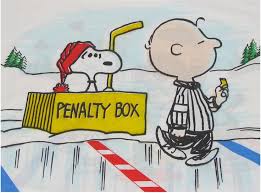 January 2022
January 2022
It can be difficult for residents to understand the difference between board actions that are not illegal but may not be justified. There is a wide gap between “stealing” from a community and a mistake or poor judgement. A board may make decisions complying with the law but not its spirit.

Violations of governing documents occur along a spectrum ranging from major to minor and unclear. When it is felt a director or board has violated governing documents one approach is to bring up concerns at a public meeting or speak privately with management. Attempting to replace a director, or initiating legal action, should be reserved for only clear and severe failures or documented theft.
An action can seem wrong but not be in violation of any rule or law. Inappropriate attire when exercising, bad language or poor behaviour may occur. Washing debris or dog urination from a balcony so it lands on a lower balcony is not uncommon. Regardless of resident concerns, such actions may be unenforceable without first revising rules or unless it occurs regularly.
Concerns are clearer when the board and management are in agreement about how to interpret and adhere to governing documents. Director or board infractions should not require much in the way of discussion. At the top of any list of infractions is theft. Never steal from corporation funds. Lower down is voting to benefit personal interests or supporting a vendor over which you have control. This may be acceptable if dealings are disclosed in meeting minutes. Recusal from related votes and possibly discussions may be appropriate. The lowest level of improper board dealings may be a director getting elected so they have a voice on matters affecting them more than other residents. An example of this may be a pet owner advocating for less restrictive pet rules.
“When a board member or resident feels a director is abusing their position of power or breaking a rule it should be reported in writing to the condominium manager or entire board” explains Liron Daniels of Nadlan-Harris Property Management Inc. “The director should be reminded they are in violation and that future compliance is expected. If a problem is more widespread all residents should be reminded of the violation and that future compliance requested. If a rule is no longer necessary it can be best to modify rules.”
When rules are modified they should be unambiguous then enforced consistently and fairly. This allows them to be understood by all and leaves no room for varying interpretation. If a rule has not been evenly enforced in the past there may be no authority to enforce it in the future. This could require the board and management to ignore certain violations until rule changes are enacted.
Ultimately, owners have the ability to replace a director if they go too far in abusing their authority. Owners have no authority to require directors to enforce corporation rules which conflict with their declaration; by-laws; the Condo Act; or any municipal, provincial or federal legislation.







